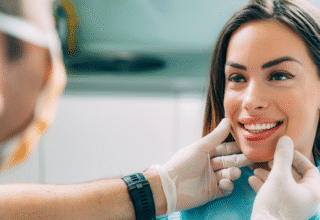
Entering a drug rehab Huntington Beach program is often one of the most transformative experiences in a person’s life. Knowing what to expect can make the journey smooth and help you prepare for the process, from the initial intake to the final discharge.
Here is an overview of what you can anticipate at each stage of rehab, focusing on the tools and support systems designed to aid in recovery.
Table of Contents
Intake and Assessment
The journey begins with an intake process that includes a comprehensive assessment of your physical and mental health, substance use history, and any co-occurring disorders.
This initial assessment helps the rehab team tailor a treatment plan that addresses your specific needs. It might involve a series of interviews, questionnaires, and medical evaluations.
At this stage, it’s natural to feel anxious or overwhelmed. Many people worry about judgment or stigma, but rehab staff provide a nonjudgmental and supportive environment to understand your struggles and set you up for success in your recovery journey.
Detoxification
If you have been using drugs or alcohol heavily, a medically supervised drug detox Orange County CA may be necessary to manage withdrawal symptoms safely.
Detoxification is often the first step after intake, and it can last anywhere from a few days to a week or more, depending on the substance and severity of the addiction.
During detox, medical staff monitors you closely to manage any discomfort and complications. Withdrawal symptoms vary but may include anxiety, nausea, insomnia, sweating, and irritability.
In some cases, medications are prescribed to help ease symptoms. Detox can be challenging, but remember that it’s temporary and a crucial step toward recovery.
Therapy and Counseling
After detox, the focus shifts to the core of rehab: therapy and counseling. Individual therapy sessions allow you to work closely with a therapist to address the underlying causes of addiction, set goals, and develop healthy coping mechanisms.
Cognitive Behavioral Therapy (CBT) and Dialectical Behavioral Therapy (DBT) are common methods used to help clients understand the thought patterns and behaviors associated with addiction.
Group therapy is another critical component of treatment. In this setting, you share experiences and insights with peers facing similar struggles. It fosters a sense of community, which can be incredibly motivating.
In group sessions, you’ll likely discuss topics like emotional regulation, relationships, and managing triggers. Peer support and camaraderie can reduce feelings of isolation and encourage you to stay on track.
Family therapy may also be a part of your rehab experience. Addiction affects not only the person using substances but also their loved ones. Family therapy sessions help repair relationships, improve communication, and set boundaries to create a supportive environment for recovery.
Developing a Support System
As you progress, you’ll begin learning practical skills that will support your sobriety outside of rehab. These life skills include stress management, emotional regulation, and strategies for avoiding triggers.
You’ll also learn relapse prevention techniques and develop a plan for when you feel tempted to use again. Practicing these skills in a controlled environment prepares you to handle challenges post-rehab.
Establishing a sober support system is a crucial aspect of this stage. Many rehab centers offer community-building activities that help you build connections with people who support your recovery. Social support is a powerful tool for staying sober and maintaining a sense of accountability.
Addressing Physical Health
Many Huntington Beach drug rehab programs incorporate physical health into treatment, focusing on nutrition and exercise as tools for recovery.
Proper nutrition can help replenish your body’s natural energy and support mental health so you stay focused and committed to recovery. Exercise, too, has been shown to reduce cravings, lower stress, and improve mood.
Some rehab centers offer recreational activities like yoga, hiking, and meditation, which improve physical health and have mental and emotional benefits.
Aftercare Planning
As you approach the end of your rehab program, you’ll work with your treatment team to create a personalized aftercare plan. This plan is designed to ensure a smooth transition back into everyday life while minimizing the risk of relapse.
Aftercare planning often includes scheduled therapy sessions, ongoing counseling, support group meetings, and resources for maintaining sobriety.
Some people might transition into outpatient programs or sober living arrangements, where they continue receiving support while gradually gaining independence.
For others, aftercare might mean regular check-ins with a therapist or sponsor, joining local recovery groups, or attending support meetings.
Discharge Day
Many people feel a mix of hope, fear, and optimism when they leave the rehab facility. As you reintegrate, remember that the recovery journey continues beyond rehab. Recovery is a lifelong process, and it’s common to face setbacks.
Stay in touch with your support network, continue attending therapy or meetings, and prioritize self-care. The foundation you’ve built in rehab is strong, and you can maintain it with commitment.
Conclusion
Entering rehab is the first step in a lifelong journey toward health and sobriety. It’s a courageous move that marks the beginning of a new chapter.
From the initial intake to the final discharge, every phase of rehab is carefully designed to help you understand, confront, and ultimately overcome addiction.
Though the process can be challenging, remember that each step forward is an investment in a healthier, happier future.
Take the first step toward a healthier, drug-free life at Broadway Treatment Center. Our compassionate team is ready to support you with personalized treatment plans.
Call us today to learn more about our programs and start your path to healing.















